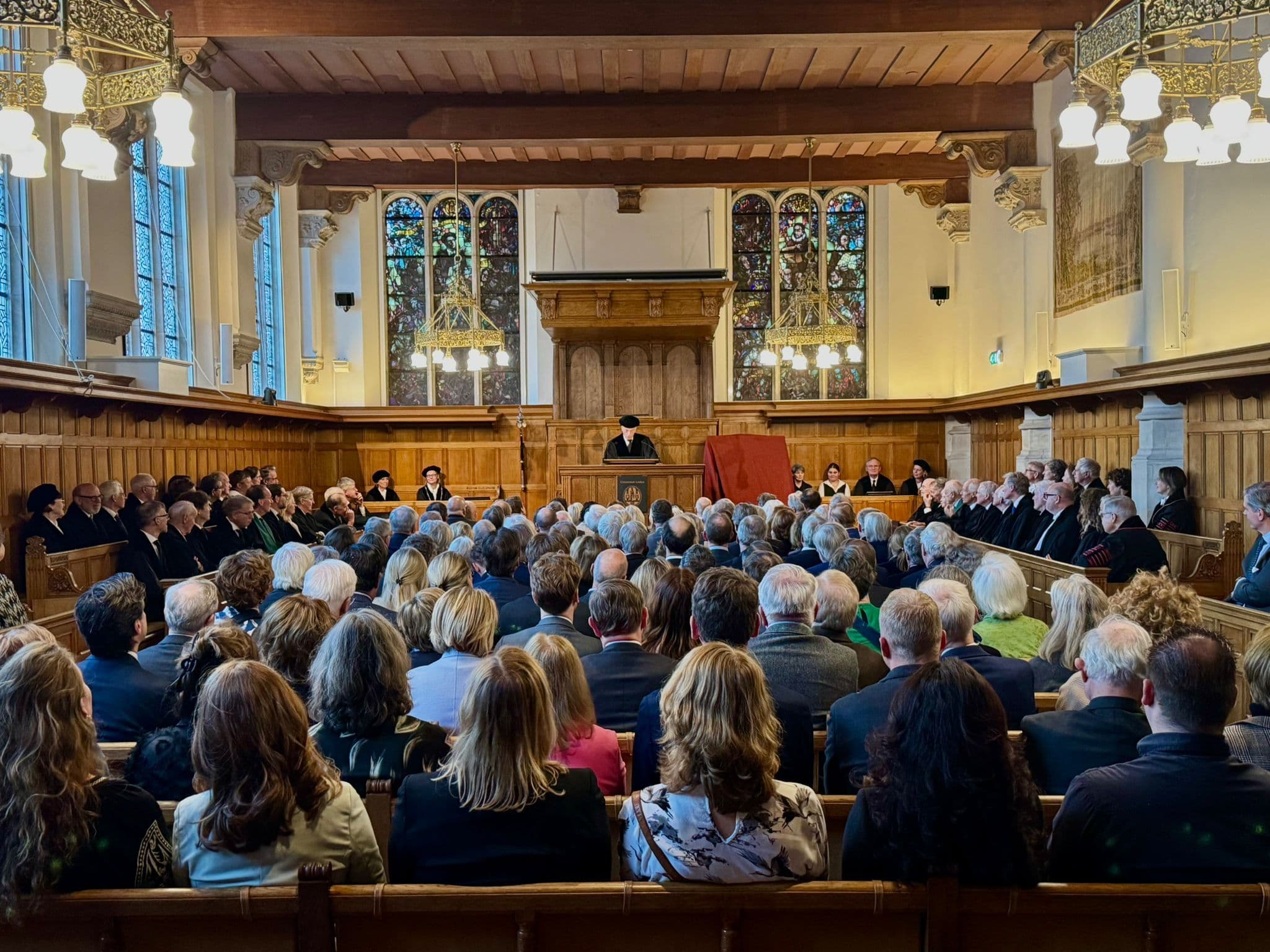Farewell lecture Jan Anthonie Bruijn calls for social engagement: 'Trust is the foundation of science and governance'
“Scientific knowledge becomes politicized, despite scientists usually not wanting to sit in the chair of policy makers.”
Published on February 2, 2025

Jan Anthonie Bruijn © Leiden University
Bart, co-founder of Media52 and Professor of Journalism oversees IO+, events, and Laio. A journalist at heart, he keeps writing as many stories as possible.
For many departing professors, the last lecture often offers an opportunity to unleash a view of the world from one's expertise. Prof. Jan Anthonie Bruijn, professor of Immunopathology at Leiden University, took that opportunity with both hands last Friday. Of course, he addressed the importance of science and knowledge in these troubled times, but he also had plenty of eye for connecting those elements to society. He made no secret of his concerns about the way politics currently views the academic world and that of truth-telling in general. Prof. Bruijn chairs the Dutch Senate on behalf of the liberal party VVD.
Bruijn's final lecture
Prof. Jan Anthonie Bruijn delivered his farewell lecture in Leiden last Friday, titled Lessons at Intersections. In the presence of prominent figures from science, politics and civil society, he reflected on his career and the broader significance of science and governance. His speech was laced with wise lessons, sharp observations, and a call for social engagement.
Bruijn was a professor of Immunopathology at Leiden University, particularly that of the kidney. He held administrative, supervisory, and representative positions in healthcare, education, science, and public administration. Prof. Bruijn chairs the Dutch Senate on behalf of the liberal party VVD.
During his farewell lecture, Bruijn emphasized the importance of civic engagement for academics. At the same time, he said, the world cannot do without the interdisciplinary application of knowledge to social issues. “The many startups and scale-ups on our fast-growing biomedical campus show that the process from fundamental research to large-scale, practical application is working better and better. And this is partly thanks to the so-called triple helix: the intersection of science, government, and business in the context of a strong region.”
The living and breathing university
One of Bruijn's key messages was that a university is not just a knowledge institution but must be a dynamic, socially engaged environment:
"A living university is also a breathing university. As an individual doctor, researcher and teacher, to achieve your goals, it is important to participate in the social debate. Explain what you do and why. Pick up new questions. I have come to the conclusion, that this message can and should be more explicit in our courses."
Bruijn advocated a “social learning line” within all curricula, including specialist courses, so isscience and practice are more connected to society.
Scientific curiosity is the foundation
In his speech, Bruijn emphasized the importance of academic curiosity and the critical questioning of existing knowledge:
"Precisely that curiosity, the ‘wanting to know,’ is the foundation of science. Searching for the edge of knowledge and going from there. Doubt, however exhausting, is the basis for progress. Wonder is the beginning of insight. Don't let that academic curiosity erode, is my appeal today to administrators and grantmakers."
With this, he argued that scientific research should not allow itself to be constrained by political or social pressurespolicymakers but should maintain its autonomy and critical function.
Politics and science: a strained relationship
Bruijn addressed the entanglement between science and politics and the resulting tensions. He warned of the growing politicization of scientific knowledge:
"Scientific knowledge is becoming politicized, despite the fact that scientists usually do not want to sit in the chair of policymakers. Scientific knowledge is used by politicians to support positions. At the same time, other politicians question the political independence of scientific institutions. Political divisions increasingly run along that contradiction."
To ensure the quality of policymaking, he advocated a broader and systematic vetting of election programs:
"The question that concerns me is: shouldn't we want to have all election programs always calculated by CPB and PBL? And then have the revenues from arts and culture, education, fundamental and practical research and innovation estimated as well?"
According to Bruijn, this would contribute to a more informed debate and prevent essential investments in knowledge and culture from being underestimated.
The importance of the democratic rule of law
Bruijn also expressed concerns about preserving the democratic rule of law, which is under pressure from mistrust and polarization:
"The rule of law also protects our pursuit of truth, here in the university: real, free science. That was Professor Rudolph Cleveringa's warning in this place on November 26, 1940."
He called on young people to engage in society and public debate:
"To all young people here: I wish you mildness and good leadership. Commit your talents to society. Be visible. Be present in public debate and public administration. Challenge the status quo, but be mindful of science and the democratic rule of law."
Trust as a foundation
Toward the end of his lecture, Bruijn emphasized that trust is the foundation of both science and governance:
"Trust is the foundation of our democratic rule of law, peace, security, and prosperity. In the carelessness of freedom and security lies the danger of its neglect and loss. That touches on geopolitical security, on war and peace."
